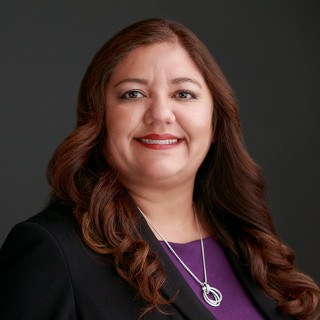San Diego Divorce Lawyers
Compare 352 top rated California attorneys serving San Diego.
![Ashley Negrette Ashley Negrette]()
Claimed Lawyer ProfileOffers Video ConferencingQ&ALII GoldSocial Media
Ashley Negrette
San Diego, CA Divorce Attorney
(619) 356-1448
9920 Pacific Heights Blvd.
Suite 150
San Diego, CA 92121
Offers Video ConferencingVideo ConfDivorce and Immigration
California Western School of Law
Attorney Negrette represents clients in complex immigration and family law cases. She employs a sharp legal strategy and patiently guides her clients through tough situations with a calm yet tenacious verve.
She is trial-ready, having done the rigorous 7-day Family Law Trial Advocacy Program at the National Institute of Trial Advocacy in Colorado. She has been nominated as a Super Lawyers “Rising Star” for 2019, 2020, and 2021, an honor given to just 2.5% of lawyers in California. She has been quoted in the San Diego Union Tribune and is rated as one of the 10 Best Immigration Lawyers by the...
![Domingo R. Castillo Domingo R. Castillo]()
Claimed Lawyer ProfileOffers Video ConferencingQ&ASocial MediaResponsive Law
Domingo R. Castillo
10.0  (1 Peer Review)
(1 Peer Review)
Offers Video ConferencingVideo ConfSan Diego, CA Divorce Attorney with 24 years of experience
Divorce, Family, Immigration and Personal Injury
University of West Los Angeles School of Law
I was born and raised in Southern Calif with my beautiful Latino family (6 brothers & 2 sisters & parents) that taught me to love, respect and make the best of it, even with beans and tortillas at times. My migrant parents came from Texas in 1953 who later became a Gardener and a Professional House Keeper for the rich and beautiful Jewish families. They taught me and my brothers to love and respect our country. After obtaining High Honors at Indio High School, I attended UCLA and then went to Law School at Univ of West Los Ángeles...
![Carrie Solny Block Carrie Solny Block]()
Claimed Lawyer ProfileSocial Media
Carrie Solny Block
San Diego, CA Divorce Attorney with 31 years of experience
Free ConsultationDivorce and Family
Loyola Law School
Carrie Block, the managing partner at Holstrom, Block & Parke's Orange County office, brings over 25 years of family law expertise from premier firms. Specializing in high-asset family divorces, collaborative divorce, and mediation in Orange County, she guides clients with compassion to achieve favorable legal outcomes. Carrie, a Qualified Domestic Relations Order (QDRO) expert, efficiently handles complexities related to 401(k)s, pensions, and benefits in divorce cases without external experts, streamlining negotiations early in the process.
Her practice spans divorce, custody, child and spousal support, paternity, and premarital rights. Carrie prioritizes accessibility, aiding clients through the challenging transition of divorce for a...
![Julie O. Wolff Julie O. Wolff]()
Claimed Lawyer ProfileOffers Video ConferencingQ&ASocial Media
Julie O. Wolff
10.0  (1 Peer Review)
(1 Peer Review)
Offers Video ConferencingVideo ConfSan Diego, CA Divorce Attorney with 13 years of experience
Divorce, Domestic Violence, Family and Juvenile
California Western School of Law
I began my legal career as a juvenile dependency attorney.
I spent nearly five years working full-time for dependency parents and children. That experience taught me how to be a strong and compassionate advocate, both in the courtroom and out.
When Child Protective Services are involved, it is crucial to have a skilled dependency attorney working for you. The same goes for a family law case where you finances and valuable time with your children are at risk.
Whether it's a juvenile dependency case or a family law matter, you deserve the time and attention necessary to ease your fears about the...
![Matthew S. Blado Matthew S. Blado]()
Claimed Lawyer ProfileOffers Video ConferencingLII GoldBlawg SearchSocial Media
Matthew S. Blado
San Diego, CA Divorce Attorney with 16 years of experience
Offers Video ConferencingVideo ConfDivorce, Domestic Violence and Family
California Western School of Law
Born in Bakersfield, California and raised in Las Vegas, Nevada, Mr. Blado is a graduate of California Western School of Law. While at California Western, Mr. Blado studied Family Law and Community Property. During his third year of law school, Matthew was selected to serve as the judicial extern for the Honorable Nancy C. Oesterle.
While attending California Western, Mr. Blado was a founding member of the California Western School of Law Community Law Project which provided free legal assistance to poor and indigent members of the community. It was during this period that Mr. Blado was first exposed to the...
![Stephen Smith Stephen Smith]()
Claimed Lawyer ProfileSocial Media
Stephen Smith
San Diego, CA Divorce Attorney with 19 years of experience
Free ConsultationDivorce and Family
California Western School of Law
Stephen V. Smith is a dedicated and skilled Divorce and Family Law attorney. He exclusively represents men and women going through difficult divorces and complex family issues. When possible, Stephen uses a non-adversarial approach, involving mediation and settlement. Because emotions run high in this area of the law, Stephen is also prepared to proceed to court to resolve cases.
In addition to over 18 years advocating for clients, Stephen has personal experience with divorce. More than 20 years ago, before becoming an attorney, he represented himself in his own divorce and contentious custody battle. During this difficult time Stephen realized what...
![Michele Bernadette Brown Michele Bernadette Brown]()
Claimed Lawyer ProfileSocial Media
Michele Bernadette Brown
San Diego, CA Divorce Attorney with 29 years of experience
Divorce and Family
University of San Diego School of Law
Michele B. Brown is an attorney licensed in the State of California and the United States District Court for the Southern District. She is a Certified Specialist in Family Law and the head of the Procopio Family Law Group. Ms. Brown has been practicing family law for approximately 25 years. She handles complex family law matters, including dissolution of marriage actions with business valuations, income analysis and financial litigation, custody, move-away and psychological evaluations, as well as pre-marital agreements, post-marital agreements, post judgment matters and enforcement actions. Ms. Brown cares deeply about the law and her clients....
![Scott Frederick Levin Scott Frederick Levin]()
Claimed Lawyer ProfileOffers Video ConferencingQ&ASocial Media
Scott Frederick Levin
San Diego, CA Divorce Attorney with 19 years of experience
Free ConsultationOffers Video ConferencingVideo ConfDivorce, Arbitration & Mediation and Family
University of Virginia School of Law
Scott Levin is a California family law attorney mediator in San Diego. As the only family law attorney in the greater San Diego area with the designation of Certified Divorce Financial Analyst™ who is entirely committed to resolving disputes in mediation, Mr. Levin is a skilled experienced California divorce mediator. After obtaining his Juris Doctorate from the prestigious University of Virginia School of Law and previously graduating Magna Cum Laude with a Bachelor of Arts from New York University, Mr. Levin helps clients negotiate equitable settlements with his finance, legal and dispute resolution expertise. Many know him as the...
![Edward M Castro Edward M Castro]()
Claimed Lawyer ProfileSocial Media
Edward M Castro
San Diego, CA Divorce Lawyer with 30 years of experience
Free ConsultationDivorce, Domestic Violence and Family
University of San Diego School of Law
Edward Castro is a seasoned family law practitioner with an unwavering commitment to the field throughout his career. In 2021, he joined Holstrom, Block & Parke as a Partner, overseeing the San Diego County office. Initially focusing on domestic violence prevention, he collaborated with SDVLP and later directed FLAP, a courthouse-based family law clinic. At the YWCA Legal Advocacy Program, he served for six years as a senior staff attorney, handling diverse family law matters, emphasizing cases involving domestic violence.
In 2010, Mr. Castro joined BLSAPC, where he became a partner in 2014. Specializing in high net-worth cases, he addressed complex...
![Christine Hayes Sickler Christine Hayes Sickler]()
Claimed Lawyer ProfileSocial Media
Christine Hayes Sickler
San Diego, CA Divorce Lawyer with 48 years of experience
(858) 566-6650
9663 Tierra Grande Street
Suite 301
San Diego, CA 92126
Divorce, Domestic Violence and Family
University of California College of the Law, San Francisco
MS. SICKLER joined Beatrice L. Snider, APC in 1985 and is the managing partner of the firm. Ms. Sickler obtained her Juris Doctorate from Hastings College of the Law in 1976 and her Bachelor of Science from the University of California at Los Angeles in 1973. Prior to joining the firm, Ms. Sickler was engaged in the general practice of law, including obtaining substantial civil and criminal trial experience. Ms. Sickler was admitted to the State Bar of California in 1976 and became a Certified Specialist in Family Law in 1991. She is a member of the State Bar of...
![Paul A. Swiller Paul A. Swiller]()
Claimed Lawyer ProfileLII SilverSocial Media
Paul A. Swiller
San Diego, CA Divorce Lawyer with 18 years of experience
Free ConsultationDivorce, Family and Juvenile
University of California College of the Law, San Francisco
![Kevin Andrew Polis Kevin Andrew Polis]()
Claimed Lawyer ProfileSocial MediaResponsive Law
Kevin Andrew Polis
San Diego, CA Divorce Attorney with 22 years of experience
(858) 755-3300
12636 High Bluff Dr, Suite 200, San Diego, CA 92130
Suite 200
San Diego, CA 92130
Divorce and Family
Thomas Jefferson School of Law
Attorney Kevin A. Polis is a member of the State Bar of California, the San Diego Family Law Bar Association, North County Bar Association, and is Certified as a Specialist in Family Law by the State Bar of California Board of Legal Specialization. Kevin Polis has dedicated his career exclusively to the practice of divorce & family law. Because of this, he is certified by the State Bar of California as a Divorce & Family Law Specialist, a title that few attorneys in our area have, and one that shows a commitment to the practice of the law and delivering...
![B. Robert Farzad B. Robert Farzad]()
Claimed Lawyer ProfileOffers Video ConferencingBlawg SearchSocial Media
B. Robert Farzad
San Diego, CA Divorce Lawyer with 27 years of experience
Offers Video ConferencingVideo ConfDivorce, Domestic Violence and Family
Western State Univ COL
B. Robert Farzad is the managing partner of Farzad & Ochoa Family Law Attorneys, LLP.
Farzad & Ochoa is a premier divorce and family law firm with offices in Orange County, Los Angeles and San Diego.
The firm represents husbands and wives in complex or high conflict cases, including those that include complex financial and/or child custody issues.
Mr. Farzad is a respected divorce attorney. He has presented seminars for the Orange County Bar Association and Continuing Education for the Bar (CEB). His work is featured in Orange County Lawyer Magazine, The Huffington Post, Yahoo Parenting and more.
B. Robert Farzad is a...
![Roy M. Doppelt Roy M. Doppelt]()
Claimed Lawyer ProfileOffers Video ConferencingSocial Media
Roy M. Doppelt
10.0  (2 Peer Reviews)
(2 Peer Reviews)
Free ConsultationOffers Video ConferencingVideo ConfSan Diego, CA Divorce Attorney with 36 years of experience
Divorce, Arbitration & Mediation, Domestic Violence and Family
California Western School of Law
For nearly 30 years, San Diego family law attorney Roy M. Doppelt, Esq. has been providing clients in Southern California with comprehensive legal services. He is currently an active member of the California and San Diego Bar Associations, and he is admitted to practice law in both California and Illinois state courts, as well as the Federal District Court for the Southern District of California.
Roy was raised in Chicago and attended the University of Michigan at Ann Arbor. He relocated to California to attend the California Western School of Law, where he obtained his J.D. in 1988, graduating with honors....
![Michelle Cornejo Sullivan Michelle Cornejo Sullivan]()
Claimed Lawyer ProfileSocial Media
Michelle Cornejo Sullivan
San Diego, CA Divorce Lawyer with 40 years of experience
Free ConsultationDivorce, Bankruptcy and Family
Santa Clara University School of Law
The mission of the attorneys at The Sullivan Law Firm, APC, is to counsel clients in finding common sense solutions to complex family and bankruptcy legal problems by providing a full spectrum of legal services. Attorney Michelle Sullivan, CLS-F, is a specialist in counseling clients regarding divorce, mediation, collaboration, adoptions, prenuptual agreements, and other legal issues. Located in Rancho Bernardo, a neighborhood of north San Diego, our family law and bankruptcy practice especially caters to residents of San Diego and North County.
![Beatrice Larsson Snider Beatrice Larsson Snider]()
Claimed Lawyer ProfileSocial Media
Beatrice Larsson Snider
San Diego, CA Divorce Attorney with 50 years of experience
(858) 566-6650
9663 Tierra Grande Street
Suite 301
San Diego, CA 92126
Divorce, Arbitration & Mediation, Domestic Violence and Family
California Western School of Law
Ms. Snider was one of eight women in a class of 423 when she graduated from California Western School of Law in 1973 with a Juris Doctorate.
The family law act of 1975, coupled with her desire to help clients in need, solidified her decision to specialize in Family Law. In 1980, Ms. Snider was one of twelve in the first class of attorneys to be board certified as a Certified Family Law Specialist in the State of California. Ms. Snider is a member of the State Bar of California, Association of Certified Family Law Specialists, San Diego Family Law Bar...
![Joshua R. Bourne Joshua R. Bourne]()
Claimed Lawyer ProfileOffers Video Conferencing
Joshua R. Bourne
10.0  (1 Peer Review)
(1 Peer Review)
Free ConsultationOffers Video ConferencingVideo ConfSan Diego, CA Divorce Lawyer with 22 years of experience
Divorce, Domestic Violence, Family and Juvenile
University of California, Davis, School of Law
Mr. Bourne is a former San Diego criminal prosecutor who prosecuted various criminal offenses and also worked in the domestic violence unit (Family Justice Center) of the San Diego City Attorney's Office. After working for the San Diego City Attorney's office, Mr. Bourne joined a civil litigation firm where he gained extensive experience in various matters including corporate and partnership law and marital dissolution. This experience includes pre-trial discovery, valuation of community and corporate assets, and various legal motion and pleading work.
Mr. Bourne also devotes substantial time as conflict counsel. He represents indigent defendants who cannot afford an attorney...
![Sandy Lynne Meade Sandy Lynne Meade]()
Claimed Lawyer ProfileQ&ABlawg Search
Sandy Lynne Meade
San Diego, CA Divorce Attorney with 24 years of experience
Free ConsultationDivorce, Domestic Violence and Family
Western Sierra Law School
Sandy L. Meade has over 20 years of experience practicing law in California. Through open communication and a commitment toward the empowerment of her clients, Sandy has earned an outstanding reputation among both colleagues and clients for her professional and compassionate approach to family law.
![Andy Cook Andy Cook]()
Claimed Lawyer ProfileQ&ASocial Media
Andy Cook
San Diego, CA Divorce Attorney with 29 years of experience
Free ConsultationDivorce, Domestic Violence and Family
California Western School of Law
Andy Cook is here to help you! With a great courtroom presence (he used to be a professional announcer) and strong writing skills, Andy is able to get your message across to the many family law judges in San Diego County.
Andy Cook handles family law matters exclusively. He has one associate attorney and has run his own practice in the Bankers Hill area of San Diego, located about a mile from the main San Diego Family Law Court, for over 23 years. Andy has been Certified as a Family Law Specialist by the State Bar...
![Mark Reel Jr Mark Reel Jr]()
Claimed Lawyer ProfileOffers Video ConferencingSocial Media
Mark Reel Jr
San Diego, CA Divorce Lawyer with 2 years of experience
Offers Video ConferencingVideo ConfDivorce, Domestic Violence and Family
Chicago-Kent College of Law, Illinois Institute of Technology
Mark is a licensed attorney with the State Bar of California. Headquartered in Riverside, California, Mark strives to provide effective, quality legal representation for men in the Inland Empire and Orange County with a focus on building strong personal relationships to help guide men through the most challenging chapters of their lives.
Prior to founding Reel Fathers Rights, Mark spent nearly a decade as a sports and fitness industry executive, working for multiple Major League Baseball Franchises, and one of the biggest fitness brands in the country, as well as founding and operating multiple startups in the sports and fitness...
![James David Scott James David Scott]()
Claimed Lawyer ProfileSocial MediaResponsive Law
James David Scott
San Diego, CA Divorce Lawyer with 42 years of experience
Free ConsultationDivorce, Domestic Violence and Family
Univ of San Diego School of Law
Board Certified Family Law Specialist with more than 35 years of litigation experience. Attorney Scott represents clients in a wide variety of family law matters. This includes military cases, complex cases in contested matters of divorce, alimony, child custody, child support, paternity, representation of families of professional baseball and football players, business evaluation and division. Mr. Scott is skilled and experienced with the treatment of professional practices and separately held businesses in divorce.
Mr. Scott also has more than 35 years of litigation experience in the following family law areas of practice:
Domestic Violence
Post Judgment Family Law
Prenuptial and Postnuptial Agreements
Grandparent Visitation Rights
Legal...
![Jenna A. Bamford Jenna A. Bamford]()
Claimed Lawyer ProfileOffers Video ConferencingLII GoldBlawg SearchSocial Media
Jenna A. Bamford
San Diego, CA Divorce Attorney with 10 years of experience
Offers Video ConferencingVideo ConfDivorce, Arbitration & Mediation and Family
California Western School of Law
Ms. Hoefler is a University of Arizona alumnus, where she attended on a full-tuition academic scholarship and graduated cum laude with a Bachelor of Science in Public Management and Policy with dual concentrations in Criminal Justice Administration and Environmental Policy as well as a minor in Business. She was a member of the Phi Alpha Delta Prelaw Fraternity, the Criminal Justice Association, and served as a teaching assistant for two courses titled “Women and Youth in the Justice System” and “Crime and Public Policy.” Her first experience with family law came while volunteering as an undergraduate intern for Southern Arizona...
![Dennis Geis Temko Dennis Geis Temko]()
Claimed Lawyer ProfileSocial Media
Dennis Geis Temko
San Diego, CA Divorce Lawyer with 11 years of experience
Divorce, Appeals, Domestic Violence and Family
California Western School of Law
Dennis Temko provides exceptional representation in appellate matters in California State Courts in San Diego, Los Angeles, San Francisco, and elsewhere. His appellate practice is focused on family law matters including custody, property division, child and spousal support, stock options, high income earners, Ostler Smith (bonus support orders), domestic violence restraining orders, and imputation, among other issues. Most of his practice has been devoted to family law appeals and writs since his 2013 admission to the California State Bar. Super Lawyers Magazine recognized Mr. Temko as a rising star in 2017, and again in 2018.
Mr. Temko has...
![Dayn Anthony Holstrom Dayn Anthony Holstrom]()
Claimed Lawyer ProfileSocial Media
Dayn Anthony Holstrom
San Diego, CA Divorce Lawyer with 34 years of experience
Free ConsultationDivorce, Estate Planning and Family
Western State University College of Law
Dayn Holstrom, leading a distinguished family law firm in Orange County, Riverside, and San Bernardino, boasts a team of highly skilled attorneys committed to guiding clients with expertise and determination. His academic prowess at Western State University College of Law includes receiving the American Jurisprudence Award 17 times, serving as Editor in Chief of the Law Review, and graduating as Valedictorian with summa cum laude honors. Admitted to the bar in 1990, Dayn founded the Law Office of Dayn Holstrom, evolving into the renowned Holstrom, Block & Parke firm in 2008.
Widely respected in Orange County, Riverside County, and San Bernardino...
![Marco Antonio Torres Marco Antonio Torres]()
Claimed Lawyer ProfileOffers Video ConferencingQ&ASocial MediaResponsive Law
Marco Antonio Torres
San Diego, CA Divorce Attorney with 22 years of experience
Free ConsultationOffers Video ConferencingVideo ConfDivorce, Bankruptcy, Family and Real Estate
University of California College of the Law, San Francisco
I have represented thousands of clients throughout the state of California. I am a member of the San Diego County Bar Association and a proud veteran of the United States Army, Reserves and the California Army National Guard.
In 1996 I graduated from the University of California with a bachelor of arts degree in philosophy, and in 1999 I received my juris doctorate from the University of California Hastings College of Law.
Early in my legal career I worked for large multi-national companies, including PricewaterhouseCoopers LLP, and North American Exchange Company, a division of Lennar Homes. I have been a solo-practitioner for...
![Nancy J. Bickford Nancy J. Bickford]()
Claimed Lawyer ProfileOffers Video ConferencingLII GoldBlawg SearchSocial Media
Nancy J. Bickford
San Diego, CA Divorce Attorney with 28 years of experience
Offers Video ConferencingVideo ConfDivorce, Arbitration & Mediation and Family
California Western School of Law
Certified by the State Bar of California Board of Legal Specialization in Family Law, Ms. Bickford practices exclusively in the area of family law helping clients with divorce and separation in San Diego. Ms. Bickford is a graduate of California Western School of Law where she received honorable recognition for outstanding achievement in the areas of community property, taxation and civil procedure, as well as a West Publishing Award in recognition of her overall outstanding scholastic accomplishment. Ms. Bickford received her Bachelor of Science from Miami University, with a dual major in Systems Analysis and Mathematics.
San Diego divorce attorney Nancy...
![Andrew J. Botros Andrew J. Botros]()
Claimed Lawyer ProfileOffers Video ConferencingLII GoldBlawg SearchSocial Media
Andrew J. Botros
San Diego, CA Divorce Attorney
Offers Video ConferencingVideo ConfDivorce, Arbitration & Mediation and Family
University of San Diego
Mr. Botros has practiced family law exclusively since 2010. He is a Certified Family Law Specialist, certified by the California Board of Legal Specialization.
![Michael Allen Fischer Michael Allen Fischer]()
Claimed Lawyer ProfileSocial Media
Michael Allen Fischer
San Diego, CA Divorce Lawyer with 18 years of experience
(858) 935-6211
Fischer & Van Thiel LLP
10620 Treena St #230
San Diego, CA 92131
Free ConsultationDivorce, Domestic Violence, Family and Juvenile
University of the Pacific, McGeorge School of Law
Michael Fischer is a licensed California attorney licensed to practice in both state and federal court. Mr. Fischer has handled hundreds of contested and uncontested family law matters. He is known for his ability to guide his clients through the tumultuous processes of family court in an aggressive yet compassionate manner. Mr. Fischer graduated Cum Laude from Saint Joseph’s College in Rensellaer Indiana with a degree in Business Administration and Marketing and a minor in Political Science. For twenty-two years he oversaw the growth of his photography studio and photo processing laboratory in Soldotna, Alaska as well as owning and...
![Win R Heiskala Win R Heiskala]()
Claimed Lawyer ProfileSocial Media
Win R Heiskala
San Diego, CA Divorce Attorney with 48 years of experience
Divorce and Family
Western State University College of Law
MS. HEISKALA joined the firm as a supervising attorney after spending 24 years as a sole practitioner in her own firm primarily devoted to family law. Ms. Heiskala obtained her Juris Doctorate from Western State School of Law (now Thomas Jefferson School of Law) in 1976. She was admitted to the State Bar of California and the Federal District Court for the Southern District in 1976, the Federal Circuit Court of Appeal in 1986 and became a Certified Specialist in Family Law in 1988. Ms. Heiskala is a member of the San Diego County Bar Association, the Family Law Section...
![Matthew J Mesnik Matthew J Mesnik]()
Claimed Lawyer ProfileSocial Media
Matthew J Mesnik
San Diego, CA Divorce Lawyer with 14 years of experience
Free ConsultationDivorce, Domestic Violence and Family
California Western School of Law
Mr. Mesnik has dedicated 100% of his practice to family law cases such as divorce, child custody and support, domestic partnership dissolution, post judgment enforcement, and modifications of support and custody. Mr. Mesnik appears in all San Diego County Family Courts including North County in Vista, California, East County in El Cajon, Downtown Central Court, Dontown Family Court, Madge Bradley Building, and Southbay in Chula Vista. Mr. Mesnik has appeared in front of each Family Court judge in San Diego County and is knowledgeable of each judicial officer currently on the bench. Throughout Mr. Mesnik's years of practice he has...
![Steven Robert Kampf Steven Robert Kampf]()
Claimed Lawyer ProfileSocial Media
Steven Robert Kampf
San Diego, CA Divorce Attorney with 12 years of experience
Divorce, Domestic Violence, Family and Juvenile
University of San Diego School of Law
Steven R. Kampf is the founder of the Kampf Law Firm and has dedicated his career exclusively to the practice of family law. As a family law attorney who has been practicing for over 4 years, Mr. Kampf has handled hundreds of dissolution and paternity cases from inception to resolution with exceptional results. He has served as lead counsel on countless dissolutions and cases involving paternity disputes, child custody and visitation conflicts, child support, spousal support, domestic violence, prenuptial agreements, and many other family law issues. Mr. Kampf has proven success both in and out of the...
![Naghmeh Bashar Naghmeh Bashar]()
Claimed Lawyer ProfileSocial Media
Naghmeh Bashar
San Diego, CA Divorce Attorney with 32 years of experience
Divorce and Family
Univ of Arizona COL
MS. BASHAR obtained her Bachelor of Science in Business Administration from the University of Arizona in Management Information Systems in 1987 and her Juris Doctorate from the University of Arizona College of Law in May 1990. She joined the firm after 7 years as a sole practitioner focusing on civil litigation, business and family law. Prior to opening her own office, Ms. Bashar was an associate attorney in a civil litigation firm where she represented financial institutions as well as individuals with personal injury, fraud and contract matters. She has also worked as a Volunteer Attorney with the Family Law...
![Justin Kirk Tabayoyon Justin Kirk Tabayoyon]()
Claimed Lawyer ProfileOffers Video ConferencingSocial Media
Justin Kirk Tabayoyon
San Diego, CA, CA Divorce Lawyer with 11 years of experience
Offers Video ConferencingVideo ConfDivorce, Domestic Violence, Family and Personal Injury
John F. Kennedy University
Mr. Tabayoyon is an experienced trial attorney that focuses on personal injury and family law matters, including federal and state trial litigation.
![Stuart Mellman Stuart Mellman]()
Claimed Lawyer ProfileSocial Media
Stuart Mellman
San Diego, CA Divorce Attorney
Free ConsultationDivorce, Estate Planning, Family and Real Estate
Thomas Jefferson School of Law
Mr. Mellman provides clients with a full range of legal services including estate planning, estate litigation, family law, divorce, child custody, child support, spousal support, civil litigation, business transactions, business law, intellectual property, real property, and asset protection. Mr. Mellman received a Bachelor of Science in Business Administration from the University of Central Florida and obtained his Juris Doctorate from Thomas Jefferson School of Law, where he graduated in the top four percent of his class with honors of Magna Cum Laude. While in law school, Mr. Mellman served as the Managing-Editor of the Thomas Jefferson Law Review...
![Roseline D. Feral Roseline D. Feral]()
Claimed Lawyer ProfileSocial Media
Roseline D. Feral
San Diego, CA Divorce Attorney with 36 years of experience
Divorce, Criminal, Domestic Violence and Family
Ms. Feral puts the needs of her clients first, even if that means dealing with conflict. Passionate about making sure her client's voice is heard, you can count on her to fight and not back down. Ms. Feral is rated one of the best criminal defense attorneys in the area and has earned the respect of clients and San Diego Defense Lawyers throughout California.
![Elizabeth P. Swiller Elizabeth P. Swiller]()
Claimed Lawyer ProfileLII SilverSocial Media
Elizabeth P. Swiller
San Diego, CA Divorce Attorney with 20 years of experience
Divorce, Family and Juvenile
University of California College of the Law, San Francisco
Elizabeth Swiller is an experienced Family, Divorce, and Juvenile Law attorney. She provides legal services to parents, relatives, foster parents and other caregivers throughout the San Diego area. Elizabeth is dedicated to zealous advocacy focused on accomplishing your goals and achieving the best possible outcomes.
Elizabeth offers smart, sensible and cost-effective solutions for your family law needs. She will passionately fight for your child and family.
Elizabeth is here to assist you in securing the brightest of futures for your child and family. Contact her for a free initial consultation.
![Neftali Morales Neftali Morales]()
Claimed Lawyer ProfileSocial Media
Neftali Morales
San Diego, CA Divorce Lawyer with 3 years of experience
Free ConsultationDivorce, Domestic Violence and Family
San Francisco Law School
![Frank Terrazas Frank Terrazas]()
Claimed Lawyer Profile
Frank Terrazas
San Diego, CA Divorce Attorney with 8 years of experience
Free ConsultationDivorce and Family
Thomas Jefferson School of Law
I spent over a decade learning from two of the top Family Law attorneys in San Diego County. After being licensed I immediately began handling all areas of Family Law matters and building what became one of the best and well regarded practices in the field. My knowledge of the law often results in attorneys that have been in practice for more than 20 years regularly seek my opinion in their own cases.
At the beginning of 2019 I decided to join the law firm of GARWOOD ATTORNEYS, ALC primarily as a litigation attorney.
The core values in my practice are...
![Michelle Paul Michelle Paul]()
Claimed Lawyer ProfileSocial Media
Michelle Paul
SAN DIEGO, CA Divorce Lawyer with 9 years of experience
Free ConsultationDivorce, Domestic Violence and Family
“Breaking Up is Hard to Do On Your Own – We will lead you through the toughest decisions you will ever have to make, whether it is to protect you, your children, your property and your future.” – Michelle Paul, Esq. Michelle is an East Coast native who has been successful in the business arena as an entrepreneur for 37 years. She went back to school after 20 years as a non-traditional student and obtained a Political Science degree with Summa Cum Laude 4.0 honors from Coastal Carolina University. She has worked in Civil Litigation for the past eight...
![Alexander Zarin Alexander Zarin]()
Claimed Lawyer ProfileResponsive Law
Alexander Zarin
San Diego, CA Divorce Lawyer with 14 years of experience
Free ConsultationDivorce, Domestic Violence and Family
George Mason University School of Law
Mr. Alexander Zarin, Esq. is The Zarin Law Firm, APC's founder and managing partner. Mr. Zarin brings his extensive experience in legal matters to the firm.
Mr. Zarin focuses all of his efforts in the firm’s family law practice. His areas of expertise include divorce, legal separation, child and spousal support, child custody and visitation, division of property and assets, premarital and post-nuptial agreements, supervised/unsupervised visitation requests, and restraining orders.
Mr. Zarin has litigated vigorously on behalf of his clients in custody and visitation proceedings, child and spousal support hearings, and dissolution proceedings. Handling each case from start to finish, Mr. Zarin...
Divorce Lawyers in Nearby CitiesDivorce Lawyers in Nearby Counties
San Diego Divorce Legal Aid & Pro Bono Services
Legal Aid Society of San Diego
(877) 534-2524
San Diego, CA
Center for Community Solutions Domestic Violence Legal Clinic
(858) 272-5777
San Diego, CA
Show More



















































